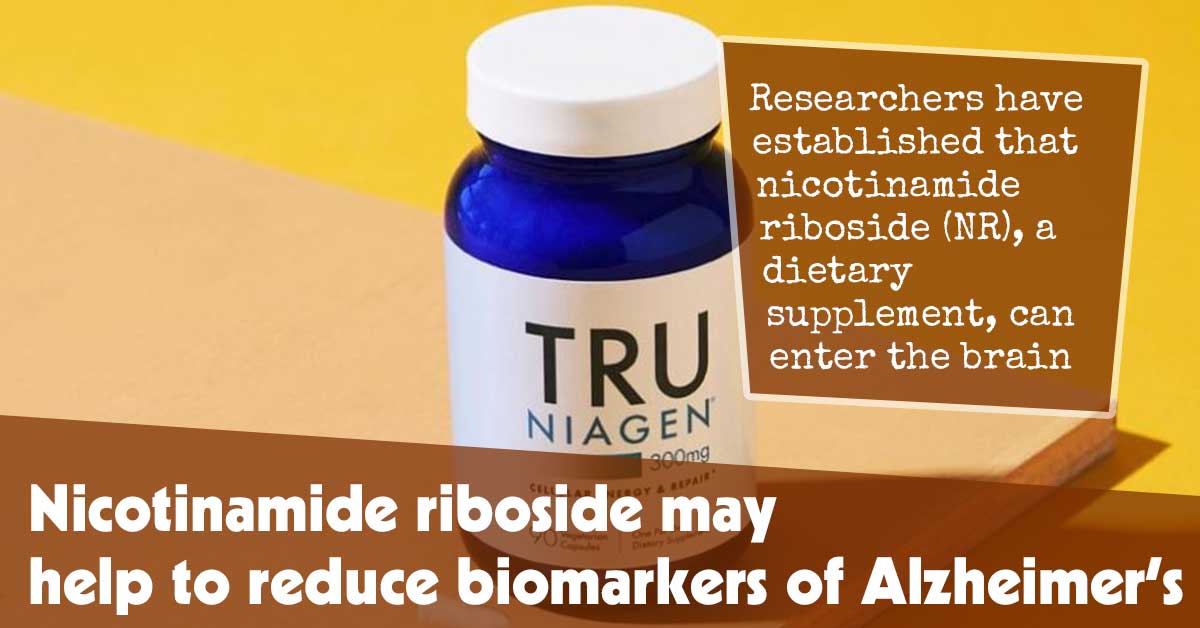Researchers have established that nicotinamide riboside (NR), a dietary supplement, can enter the brain. The discovery is important as it supports the notion that when NR reaches the brain, it can change the metabolism of biological pathways associated with neurodegenerative diseases such as Alzheimer’s.1✅ JOURNAL REFERENCE DOI: 10.1111/acel.13754
NR is readily transformed into nicotinamide adenine dinucleotide (NAD+) after consumption. NAD+ is essential for cellular repair as well as the repairing of DNA that’s been damaged.
NAD+ gradually decreases as we age or from chronic disease. NAD+ loss is associated with obesity as well as other harmful lifestyle habits such as smoking. NAD+ depletion is more likely when faced with negative lifestyle habits because more NAD+ is necessary for counteracting those negative consequences.
In an earlier preliminary study, the researchers discovered that NAD+ blood levels could be increased if individuals consumed NR, but it was unclear if it could reach other body tissues.
They had some initial signs of efficacy, such as lower blood pressure in individuals who had high blood pressure to start with. But it wasn’t known until now if NR reached organs such as the brain to have a significantly beneficial effect.
Determining NAD+ levels in the human brain is difficult. There are promising methods involving MRI, but these are costly and tricky to perform and only provide an indirect measure. The researchers instead measured NAD+ in tiny particles known as extracellular vesicles in the blood that came from neurons. These extracellular vesicles are able to provide advanced blood-based brain disorder biomarkers and function as a neuron “liquid biopsy”, giving a glimpse at what’s inside them.
The surface of each vesicle has a unique molecular signature, which includes proteins that provide clues regarding its origin. In this case, vesicles were selected that carry neuron characteristic markers, and so the researchers are confident that the NAD+ measured in them reflects what takes place in the neurons, and the brain by extension.
Making use of samples from the first preliminary study, it was first established that levels of NAD+ increased in these vesicles after 6 weeks.
A connection is seen with some of the neurodegenerative disease biomarkers when NAD+ increases in these vesicles. Especially in individuals where an NAD+ increase was observed, changes were also seen in biomarkers such as tau and amyloid beta, which are both associated with Alzheimer’s disease.
A connection was also observed between NAD+ changes and these neurodegenerative biomarkers.
There was generally a bigger change in some of the biomarkers of disease if NAD+ increased a lot. That means the NAD+ isn’t just entering the brain but it’s probably also having some impact on its metabolism and various interrelated pathways.



